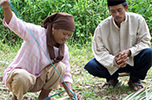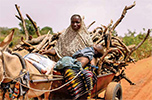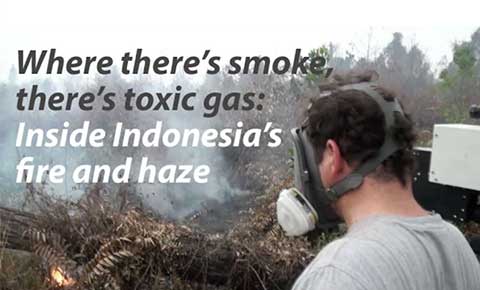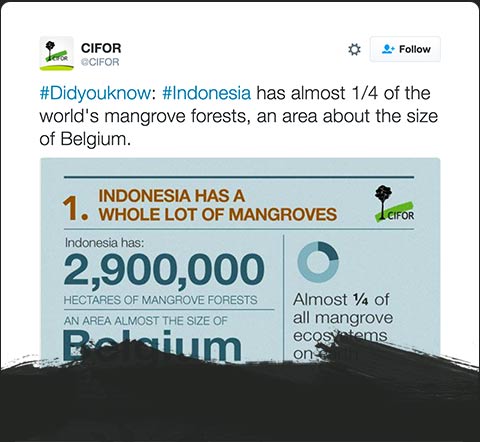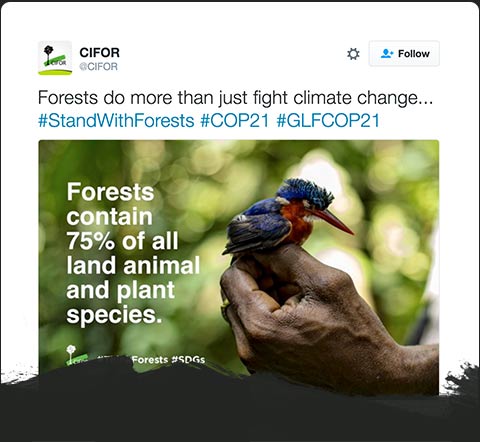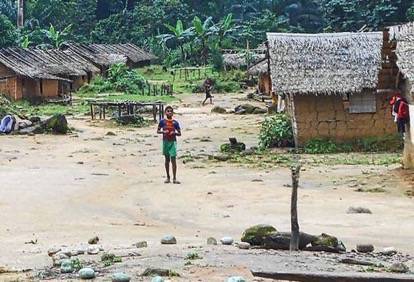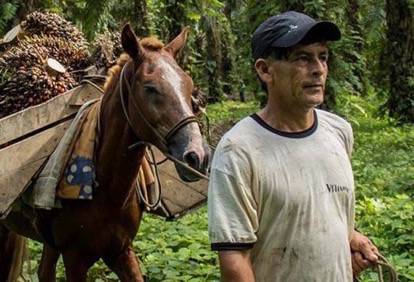
Policy that benefits women and men
CIFOR provides expert advice to support gender-equitable REDD+ policy in Indonesia
As Indonesia enters the implementation phase for REDD+(reducing greenhouse gas emissions from deforestation and forest degradation), the country will begin measuring forest carbon stocks and distributing payments as an incentive for people to keep their forest lands intact. But if this is not done in a socially sensitive manner, it may reinforce norms that already marginalize women.
In Indonesia the Ministry of Women Empowerment and Child Protection has a mandate to mainstream gender across all ministries. To support its efforts to do this in the forestry sector, the Ministry asked CIFOR to give background on issues surrounding gender and REDD+.
“We are using CIFOR’s research on gender issues in the forestry sector to reach out to more stakeholders, and look forward to testing the findings at the field level.”
The CIFOR team – which included researchers from CIFOR’s REDD+ Global Comparative Study, the REDD+ Benefit Sharing team and the Gender Integration Team – identified key areas where REDD+ processes should address gender issues. Crucially, gender analyses should be incorporated throughout, from policy design to implementation; gender disaggregated data should be collected at national and local levels; the goal of gender equity should be central to all REDD+ activities; and stakeholders at subnational levels should be involved to ensure equitable policies are implemented locally.
In collaboration with the Indonesian Ministry of Women Empowerment and Child Protection and the Gender Task Force of the Ministry of Environment and Forestry (MOEF), CIFOR created a factsheet to inform the MOEF Directorate General of Climate Change, which led negotiations during COP 21. The factsheet was also disseminated at a side event.
CIFOR advances human well-being, environmental conservation and equity by conducting research to help shape policies and practices that affect forest landscapes in developing countries. CIFOR is a member of the CGIAR Consortium. Our headquarters are in Bogor, Indonesia, with offices in Asia, Africa and Latin America.
CIFOR leads the CGIAR Research Program on Forests, Trees and Agroforestry.
foreststreesagroforestry.orgCIFOR is also a member of the CGIAR Research Program on Climate Change, Agriculture and Food Security (CCAFS).
ccafs.cgiar.orgFlagship projects
Partners and processes
In 2015, CIFOR and its stakeholders benefited from:
-
144
-
85
- 33
- 33
-
29
-
35
CIFOR and its partners contribute to the following global processes, frameworks, panels and conventions:

Publications
Demand from stakeholders for CIFOR’s research grew at an unprecedented pace this year. In 2015 we disseminated more than 62,000 knowledge products at events, meetings and on request.
25% increase from 2014
Analysis
-
DG’s column addresses new forest assessments, the World Forestry Congress, and more.
-
At the peak of Indonesia's peatland fires, our scientists went to the field to find clear answers to the haze issue.
-
CIFOR researchers untangle the issues around zero deforestation, dry forests, land tenure, satellite data and more.
Numbers
77% increase compared to 499,000 views in 2014
127% increase compared to #GLFCOP20 tweets
CIFOR's research is designed to have a far reach, aiming to inform policy and effect real change on the ground. We foster a strong "impact culture" through:
A focus on gender
From planning research priorities to developing partnerships and communicating findings, gender is integrated throughout our work.
Capacity building
All of our research programs and projects include measures to strengthen both individual and institutional capacity.
Monitoring impact
We use sophisticated monitoring and evaluation techniques to gather feedback and improve our pathways to impact.
Each year, CIFOR's scientific findings reach more people through a communications strategy that combines journalistic approaches, social media and science communication.

 35,200
35,200
total Facebook likes, 24% increase

 37,733
37,733
Twitter followers, 41% increase

 7.5 million
7.5 million
photo views on Flickr, 56% increase

 564k
564k
cumulative video views on YouTube, 36% increase

 5227
5227
LinkedIn followers, 39% increase

 Top 5%
Top 5%
of Most-Viewed on SlideShare, with over 237k views, 42% increase

PHOTO
Selected photos

PHOTO
Selected photos

PHOTO
Selected photos

PHOTO
Selected photos

PHOTO
Selected photos

PHOTO
Selected photos

PHOTO
Selected photos

PHOTO
Selected photos

PHOTO
Selected photos

PHOTO
Selected photos

PHOTO
Selected photos

PHOTO
Selected photos

PHOTO
Selected photos

PHOTO
Selected photos

PHOTO
Selected photos

PHOTO
Selected photos

PHOTO
Selected photos

PHOTO
Selected photos

PHOTO
Selected photos

PHOTO
Selected photos

PHOTO
Selected photos

PHOTO
Selected photos

PHOTO
Selected photos

PHOTO
Selected photos

PHOTO
Selected photos

PHOTO
Selected photos

PHOTO
Selected photos

PHOTO
Selected photos

PHOTO
Selected photos

PHOTO
Selected photos

PHOTO
Selected photos

PHOTO
Selected photos

PHOTO
Selected photos

PHOTO
Selected photos

PHOTO
Selected photos

PHOTO
Selected photos

PHOTO
Selected photos

PHOTO
Selected photos

PHOTO
Selected photos

PHOTO
Selected photos

PHOTO
Selected photos

PHOTO
Selected photos

PHOTO
Selected photos

PHOTO
Selected photos

PHOTO
Selected photos

PHOTO
Selected photos

PHOTO
Selected photos

PHOTO
Selected photos

PHOTO
Selected photos

PHOTO
Selected photos

PHOTO
Selected photos

PHOTO
Selected photos

PHOTO
Selected photos

PHOTO
Selected photos

PHOTO
Selected photos

PHOTO
Selected photos

PHOTO
Selected photos

PHOTO
Selected photos

PHOTO
Selected photos

PHOTO
Selected photos

PHOTO
Selected photos

PHOTO
Selected photos

PHOTO
Selected photos

PHOTO
Selected photos

PHOTO
Selected photos

PHOTO
Selected photos

PHOTO
Selected photos

PHOTO
Selected photos

PHOTO
Selected photos

PHOTO
Selected photos

PHOTO
Selected photos

PHOTO
Selected photos

PHOTO
Selected photos

PHOTO
Selected photos

PHOTO
Selected photos

PHOTO
Selected photos

PHOTO
Selected photos

PHOTO
Selected photos

PHOTO
Selected photos

PHOTO
Selected photos

PHOTO
Selected photos

PHOTO
Selected photos

PHOTO
Selected photos

PHOTO
Selected photos

PHOTO
Selected photos

